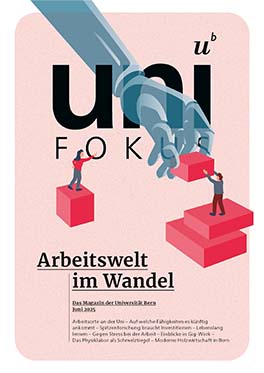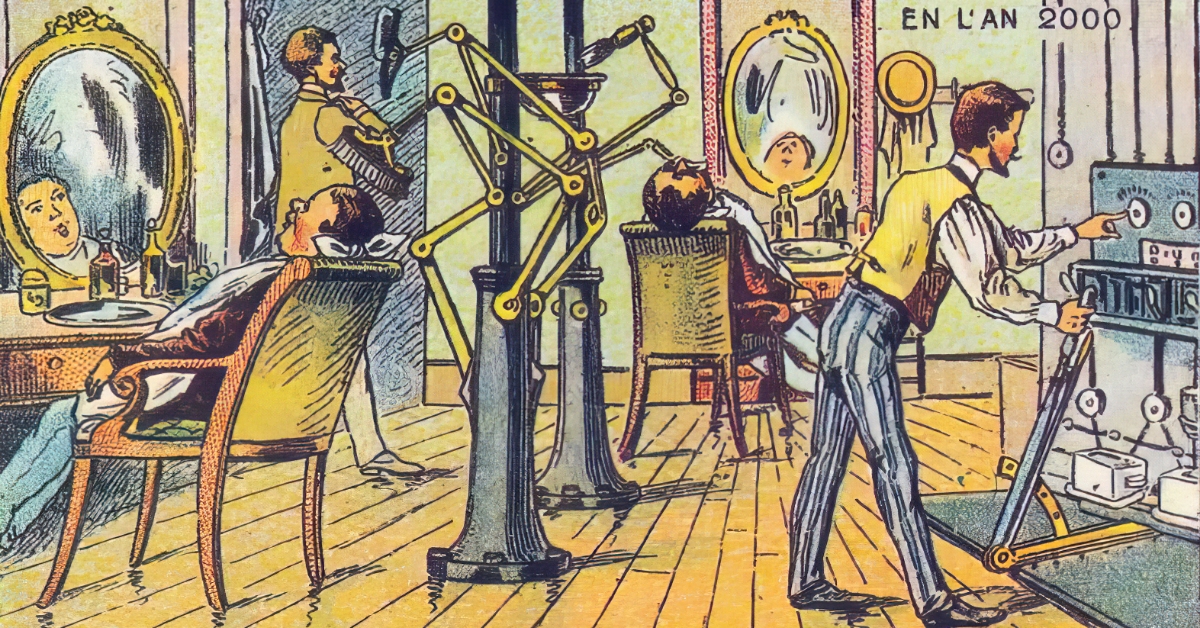Occupational health
Staying mentally healthy at work – what you need to do
Digitalization and new forms of work are impacting our mental health. As Professor of Occupational Psychology at the University of Bern, Achim Elfering knows what stresses us so much at work – and what is good for us.

Achim Elfering: One indicator of this is emotional exhaustion, which we regularly monitor in the Switzerland-wide Job Stress Index. There, we see that the majority – 55 percent – do not feel exhausted. However, the proportion of people who are exhausted has increased significantly within ten years, from 24 to over 30 percent. As many as 9 percent are now very exhausted (see theinfographic). These people are already tired before they go to work. Their batteries are empty and not so easy to recharge. You need to know that emotional exhaustion is the key symptom of burnout.
What do you attribute this fatigue to?Emotional exhaustion results from chronic stress, poor recovery, and a poor balance between strain and resources at work and in private life. We assume that the main reason is compressive stress: As a result of digitalization, our work is becoming more intense and more concentrated. Even if we work fewer hours, we feel more exhausted because we are constantly interrupted, inundated with messages and information and overstimulated, and it is increasingly difficult for us to distinguish the important from the unimportant. Digitalization is also exacerbating the consequences of our weaknesses: For example, we generally realize too late when we are tired and need a break. But when working from home, we have to structure our working hours ourselves – and therefore we do not take sufficient breaks and the breaks we take are too late.
“It’s best to take a five-minute break every hour.”
Achim Elfering
In other words, it would help to take more frequent breaks?Yes, that’s a simple but effective tip. It’s best to take a five-minute break every hour. It is important that you devote yourself to something completely different during the break. If you are looking at a screen while working, it is best to stand up, take a few steps, stretch and look into the distance. On the other hand, if your work is physically hard, you can lie down for a short time.
What else can you do to stay healthy at work?First of all, I would like to emphasize that work is primarily good for us – both mentally and socially! When we work, we experience ourselves as competent, celebrate successes, get to know other people, experience recognition and form an identity. Work stabilizes our psyche. To ensure that these positive aspects prevail, it is crucial that we avoid undue stress. Avoid working hours that are too long and bring variety to your work by varying between routine and complex tasks. And volunteer for tasks and positions that are consistent with what you are good at and enjoy doing. The social philosopher Frithjof Bergmann, who with his New Work concept initiated a fundamental change in the world of work toward greater freedom and self-fulfillment, asked people the question “What do you really want to do?”. Ideally, what you answer should be part of your work.
My impression is that this is not the case for many people. Should they resign and follow their vocation?Not necessarily. We are more satisfied with our work if we get what we want there. You can therefore also try to improve your work and get more of what you want in your current job. However, you can also create this fit by reducing your expectations. By saying to yourself: My job is not ideal, but it wouldn’t be better anywhere else. We estimate that 30 to 40 percent of employees have settled into this resigned satisfaction. Even if you’re about to retire, that’s not good. But it is devastating for young workers.
Why?The transition from an apprenticeship or studying to work is a decisive moment. You should not lower your demands and goals, but increase them. This increases the likelihood that you will get better working conditions as well as more varied and exciting tasks. And these are important factors for mental health at work. If you settle for less at this important transition, it will not be easy to correct later.
“When transitioning from an apprenticeship or studying to work, you should not lower your demands and goals, but increase them.”
Achim Elfering
Young adults are increasingly suffering from mental health issues. What role does work play in this?Training and work are the best thing for the mental health of young people. They have a stabilizing effect, they give them success, better self-esteem and greater self-efficacy. But in fact, according to the most recent Swiss health survey, one in five people between the ages of 15 and 24 is affected by anxiety disorders, addiction or depression. Young people are also significantly more emotionally exhausted than older people. The most important thing now is for young adults to be able to enter the labor market – and stay in it – despite psychological stress. Otherwise, it will be very difficult for their future life. However, this requires teachers and parents to make additional efforts and work together to identify and act on signs of excessive demands or interpersonal conflict, for example. From the fall, the University of Bern will also be offering a CAS on dealing with employees – young and old – who have psychological problems.
Subscribe to the uniAKTUELL newsletter

Discover stories about the research at the University of Bern and the people behind it.
They can create what is known as a psychosocial safety climate. This includes, for example, a positive error culture: If we make mistakes, we should not have to fear loss of face or punishment. Instead, the motto should be to want to learn from mistakes. This encourages us to take on new tasks. In addition, everyone can contribute with criticism and suggestions. This is a culture that younger employees are used to from school and that they demand in the world of work. Incidentally, this kind of culture also strengthens occupational safety because errors and near-accidents are reported. Lessons can be learned from this and accidents can therefore be avoided.
What role do supervisors play in this?A major one! A company can embrace a positive error culture, but it must also be exemplified. The moment managers start yelling at employees because they have made a mistake is when your positive error culture is a thing of the past. What is noteworthy is that when people resign, they usually leave their superiors rather than their duties or their organization. Incidentally, a very simple way for supervisors to improve the working atmosphere is praise. It costs nothing, but it is very effective. Because when I praise employees for good performance, I express appreciation – and that’s a very powerful resource. Nevertheless, praise is often used very sparingly even though the performance is good. Some managers justify this by saying that they have no time and have to take care of what goes wrong. In addition, some fear that praise wears thin. But that is not the case, praise is not subject to inflation. Praise good performance as often as possible!
“Praise good performance as often as possible! After all, praise is not subject to inflation.”
Achim Elfering
Which leadership styles promote health?We distinguish between people-oriented and task-oriented leadership. Task-oriented leadership focuses on everything that helps tasks to be completed faster and better. People are not the focus. This can work well as long as all employees feel committed to the work goals and everyone understands each other well. If this is not the case, people-oriented leadership becomes indispensable. People-oriented supervisors attach great importance to the well-being of their employees by ensuring that the working atmosphere is good, that individual employees can develop further and that they can reconcile their professional and private lives. This is also referred to as empowerment. Freedom to act is key: Employees should be able to have a say in who they work with, how they do their work and in what order they complete their tasks.
Someone sitting at the checkout in the supermarket does not have this freedom.Yes, here too, employers can give them freedom. For example, if the cash registers are built mirror-inverted, so that a cashier can shift the load from one hand to the other if, for example, her left shoulder starts to ache. Freedom to act also means being able to switch between standing and sitting positions and not always having to be friendly to aggressive customers.
Digitalization and New Work are changing the world of work. How does this affect our mental health?These changes are both a stressor and a resource. We can see this in the case of working from home. The advantage of this is that you save yourself a lot of travel and time. On the other hand, if there is no commute, you don’t have the transitional time to detach yourself from work and adjust to your private life. That’s why we recommend going outside for five minutes after working from home to prepare for your next role or activity. This is just a small example of a typical disadvantage of the increasingly complex world of work: Employees have many more self-management tasks. They have to decide for themselves when and in which space they work or how they can get enough exercise when working from home, and also how not to become lonely. They have to see how they can get unofficial information from the organization even when working from home. All employees are much more in charge of their own careers and need to keep up with training and their employability throughout their lives. For someone who is already emotionally exhausted, this is all too much.
“After working from home, go outside for five minutes to prepare for your next role or activity.”
Achim Elfering
What are the opportunities in the new world of work?People can and must learn a lot and thus remain flexible in their minds. Digital resources such as AI chatbots make it easier for them to select and structure their tasks to better match their strengths and interests. Digitalization can thus promote meaningfulness, self-development, motivation and satisfaction. Artificial intelligence can also bring benefits in work planning, for example, by making shift schedules fairer and more transparent. Employees can specify their preferences, and the AI program can then find the schedule that best matches the preferences of the employees and the requirements of the company. In addition, the manager has the option of overriding the program if necessary. In the end, employees can check what the AI has done, how many of their preferences have been taken into account – even compared to other employees – and when the manager has overridden it. This transparency increases acceptance and satisfaction. And in this way, AI helps to better balance work and private life.
About the person

Achim Elfering
is Associate Professor of Occupational and Organizational Psychology at the University of Bern. His research focuses on work and health, stress, occupational and patient safety, job satisfaction and positive feedback. He is jointly responsible for the Job Stress Index, which has been analyzing the mental health and stress of Swiss employees every two years since 2014 as well as the economic consequences (see infographic on page 26). This index is published by Gesundheitsförderung Schweiz (Health Promotion Switzerland) in collaboration with the team from the University of Bern (Sibylle Galliker, Norbert Semmer, Achim Elfering) and the Zurich University of Applied Sciences (ZHAW).
Magazine uniFOKUS

The changing world of work
This article first appeared in uniFOKUS, the University of Bern print magazine. Four times a year, uniFOKUS focuses on one specialist area from different points of view. Current focus topic: The changing world of work
Subscribe to uniFOKUS magazine

